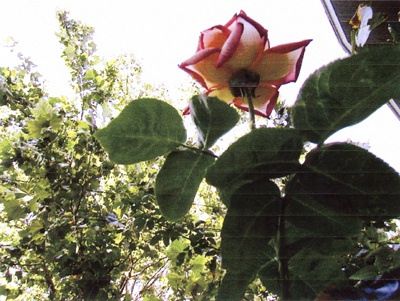All Nonfiction
- Bullying
- Books
- Academic
- Author Interviews
- Celebrity interviews
- College Articles
- College Essays
- Educator of the Year
- Heroes
- Interviews
- Memoir
- Personal Experience
- Sports
- Travel & Culture
All Opinions
- Bullying
- Current Events / Politics
- Discrimination
- Drugs / Alcohol / Smoking
- Entertainment / Celebrities
- Environment
- Love / Relationships
- Movies / Music / TV
- Pop Culture / Trends
- School / College
- Social Issues / Civics
- Spirituality / Religion
- Sports / Hobbies
All Hot Topics
- Bullying
- Community Service
- Environment
- Health
- Letters to the Editor
- Pride & Prejudice
- What Matters
- Back
Summer Guide
- Program Links
- Program Reviews
- Back
College Guide
- College Links
- College Reviews
- College Essays
- College Articles
- Back
The Perfect Bacteria for Growing Humans
"Hey, watch where you are going" a classmate instructed me after I had absentmindedly run into him in the hallway. Embarrassed, I whispered "I'm really sorry" a few seconds before I run into another student.
After I ensured that I was far enough from the stream of students that I could not impose harm on anyone else, I listened to my voicemail again "Hi I am returning a message about working on a research project at one of the University’s labs. Could we meet at 4pm?"
A novice in the field of scientific research, my aspirations were not quite correlated with my skill level. I dreamed that I alone could find the cause behind Alzheimer's or if I allowed myself to truly indulge in my fantasy world I aspired to genetically engineer mosquitoes to be neon so I could more easily see them to kill them (a long-standing dream of mine).
While these aspirations lived on in my heart, I had to start from the bottom to gain skills. Thus, I began doing some internet research on some more fundamental, basic experiments and ended up studying how bacteria affect the development of plants. While my conclusion was not quite as revolutionary as neon mosquitoes, it was still extremely interesting to me because it gave me insight into the wild world of bacteriology. Cocci, spirochete, bacillus, diplococci, gram positive, gram negative these were all words I had never heard before and now I knew how each one affected the growth of different plants.
Plants could largely be compared and defined by the kinds of nutrients and bacteria that would allow them to flourish. The specific temperature, soil type, and bacteria that would make delicious lentils is different from the combination of atmospheric conditions that would bring out desirable qualities in beans. Each plant needs a different set of nutrients, for example, that just a specific kind of bacteria can provide.
Thus, plants are vastly different entities, requiring different forms of nourishment from their environment to thrive. While humans are a couple of evolutionary steps away from plants, they too require a distinct combination of nutrients and should never be compared as each individual is intellectually fulfilled by unique topics and ideas.
For example, an equipped lab, a knowledgeable professor and a biology textbook served as the perfect nutrients for me to ignite my drive to learn, quicken my heart beat and consequently cause me to crash into several of my classmates. Science has allowed me to grow as a student and a person by nurturing my intellectual curiosity and exposing me to a different way of viewing the world.
All that separates the different species of plants is a DNA sequence, an extremely small fraction of all the bases of DNA. The beauty of science lies in the small details: a microlitter more or less of an ingredient in a protocol can have a huge difference in the end result. While it is perhaps minimalistic to compare differing humans to lentils and beans, all that separates every one of us on this earth are sequences of DNA. These microscopic details have forged us into unique individuals with unique interests.
Given a very specific combination (different for each individual) of intellectual and material nutrients everyone can achieve optimal growth. This combination of nutrients comes from choosing the right environment—the right city to live in, the right friends to surround yourself with, and even the right school to go to. Lentils and beans, like people, are vastly different in a variety of aspects; however, it is these differences that truly make life worth living, these differences are the reason why I am eager to continue to explore the world and the people living in it. It is those differences that drive me to desire to continue my education at a University where the combination of unique resources and self-driven people with different intellectual interests will provide the perfect nutrients and bacteria for me to achieve optimal growth.

Similar Articles
JOIN THE DISCUSSION
This article has 0 comments.
